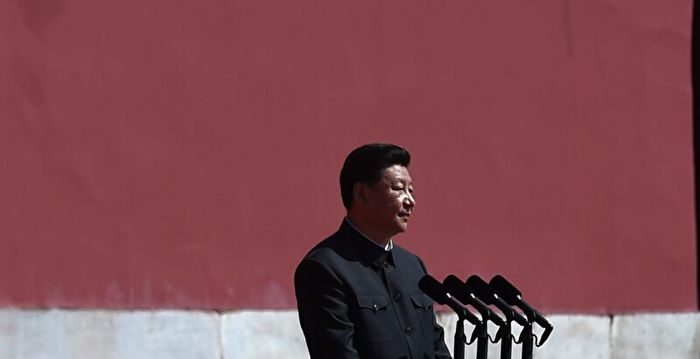[Epoch Times, August 24, 2021](The Epoch Times reporter Zhang Yuanzhang reported from Taipei, Taiwan) Chinese President Xi Jinping recently emphasized the policy plan of “common prosperity”, especially the construction of the “three distributions” system, foreign media On August 24, the author mentioned that private enterprises were frightened by this.
Regarding the so-called “three distributions”, it comes from the concept put forward by the Chinese economist Li Yining: the first distribution is the market based on the principle of efficiency; the second is the government’s emphasis on the principle of fairness, through taxation and social security expenditures. Wait for redistribution; the third time is the distribution through voluntary donations under the influence of moral force.
Xi Jinping recently proposed a “common prosperity” plan, which requires the establishment of basic institutional arrangements for the coordination of primary distribution, redistribution, and three distributions, and increase the adjustment of taxation, social security, and transfer payments and improve accuracy.
The Voice of America mentioned in this report that the institutional arrangement of three distributions is not a redistribution of social wealth that kills the rich and helps the poor? How much room for survival and development of China’s private capital, which has become a surprise?
The report quoted experts saying that the third distribution originally meant that individuals or companies voluntarily donated part of their disposable income for charity, and China’s current practice will definitely turn voluntary donations into compulsory apportionment. , Private companies will face charity extortion.
Forced fundraising dampens enthusiasm
Hu Ping, honorary editor-in-chief of “Beijing Spring”, mentioned that the CCP urgently needs funds to subsidize the poor, but the government is not willing to withdraw from the state treasury. Therefore, it has focused on the private economy and forced private enterprises to pay more in the name of voluntary donations; this is a short-term view. , Which is beneficial to some poor people, but severely dampens the enthusiasm of private entrepreneurs for production, but in the long run it is disadvantageous.
“There is a joke that the secret to fundraising is to put a smile on the first face and don’t hold the gun on the second waist. So in Chinese history there is such a situation, the so-called exorbitant taxes and taxes. What do you mean by exorbitant taxes and taxes? In addition, there are cleverly set up names to find a lot of taxes. In addition, the’donation’ is obviously voluntary, and it turns into a mandatory apportionment. This is the point that everyone is most concerned about.”
The so-called institutional arrangement of the CCP’s third distribution is regarded by many observers as a CCP’s act of killing the rich and helping the poor.
In addition, some observers have noticed that large-scale private companies that already have monopoly concerns are constantly being interviewed, revealing the image that private companies may have to collapse when their scale reaches a certain level; only at this time, Anshan Iron and Steel Company and Benxi Iron and Steel The company and other two large state-owned enterprises have established the world‘s third largest crude steel production consortium in a powerful combination.
Have a negative impact on the economy
Zhang Xin, emeritus professor of economics at the University of Toledo, believes that economic development plans that preferentially treat state-owned enterprises and discriminate against private enterprises will inevitably have a negative impact on the economy.
Zhang Xin believes that nationalization and planned economy are a failed system. “We remember that in Mao’s time, the people had no livelihood. Urban residents depended on food stamps to tighten their lives. There were two famines in the countryside and the national economy collapsed. That was a In the era of equalization. The current problem of state-owned enterprises is still the same, and they are basically losing money. According to a study, if state-owned enterprises remove all subsidies and bank loans, the overall loss will be even worse.”
“The profitable non-state-owned enterprises, such as Alibaba, etc., are now forced to participate and be managed by the party. This really reflects the discrimination against private enterprises. This will inevitably have a negative impact on the economy.” Zhang Xin said.
Editor in charge: Lv Meiqi #
.
